With the clouds parting, after my muddy hike up to Ensign Peak, I drove down the hill to the Utah State Capitol building for a look around. During a previous visit in 2007, the building was in the middle of a massive refurbishing, and the whole structure was surrounded by construction equipment. I couldn’t get close then, but this time nothing was stopping me from seeing “The People’s House” up close. The only thing that was even remotely getting in my way was the sprinkler system…
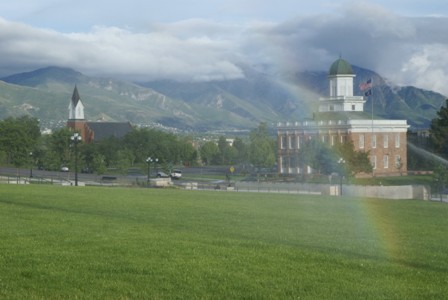
… which ended up providing some nice rainbows, as I looked across the capitol building’s front lawn. Through the mist, you can see the old Salt Lake City Council Hall (the old town hall, which served from 1866 to 1894, and was relocated to Capitol Hill in 1961) and the White Chapel (on the left, a reproduction of an earlier LDS chapel that re-used some of the same parts — including the steeple).
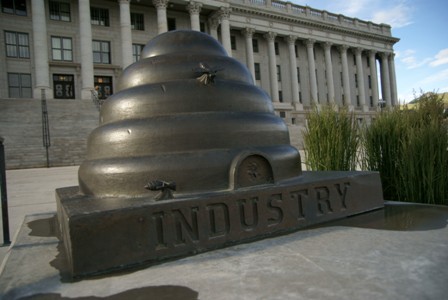
A pair of beehives stands guard over the steps that lead up to the capitol’s front entrance. If you’ve made it this far into Utah, by now you know that the beehive symbol is everywhere — on the flag, the state seal, road signs, etc. The beehive is a symbol of industry, perseverance, thrift, stability, and self-reliance†. It also has its roots in the LDS faith: the honeybee in the Book of Mormon was named Deseret, and the first name given to the territory now known as Utah was “the State of Deseret”.
Earlier in the afternoon, before discovering Ensign Peak, I had tried to find City Creek Canyon. I ended up at a gated road, turned around, and gave up. But when I parked along Capitol Boulevard to see the capitol building…
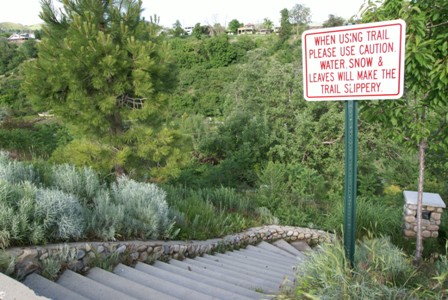
… I just happened to notice a staircase descending into the canyon. There were no gates to stop me this time, so I hiked down…
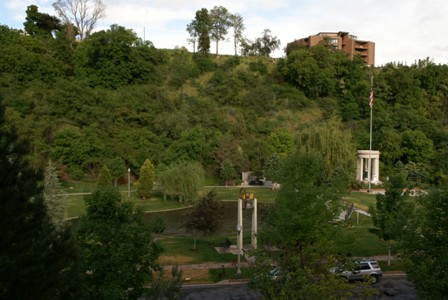
… into a beautiful place known as Memory Grove Park. This area, at the mouth of City Creek Canyon, was set aside as a city park in 1902, but remained empty until the 1920’s, when the women of the Service Star Legion spearheaded an effort to establish a memorial park for servicemen here. Since then, the valley has filled up nicely with landmarks including…
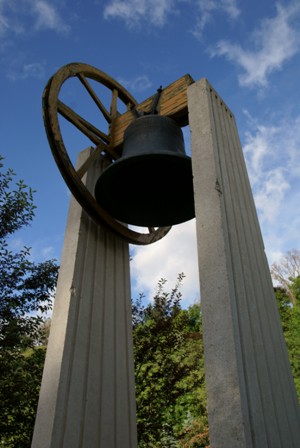
… this replica of the Liberty Bell…
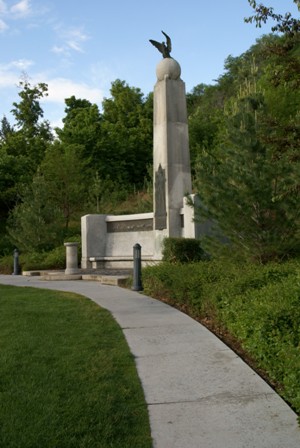
… the 145th Field Artillery Monument, dedicated in 1927…
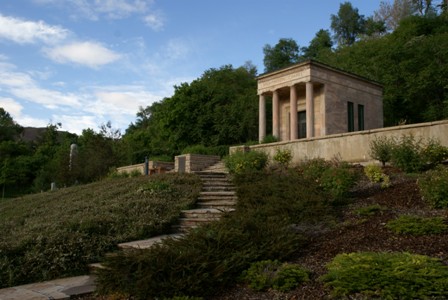
… and the Meditation Chapel, built in 1948 as a memorial to the lives of servicemen lost in World War II.
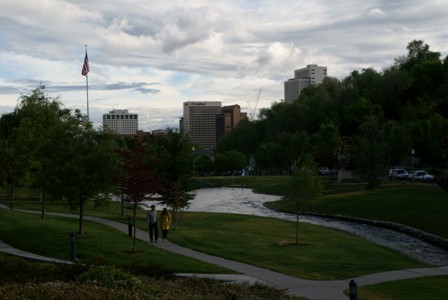
Looking south, it’s almost a shock to see Salt Lake City’s downtown buildings so nearby.
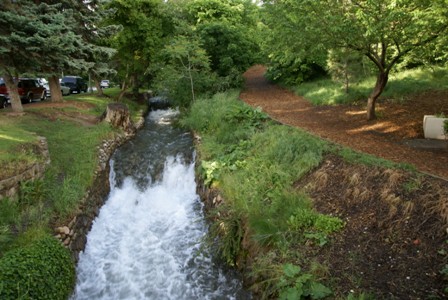
From the Stone Footbridge at the upper end of the park (which dates back to 1927), you can get a nice view of City Creek, and the start of the City Creek Canyon Trail. From here on up the canyon, dogs are allowed off their leashes, which makes this a popular area with pet owners. As you hike up the trail, it takes almost no time before you feel like you’ve left the city behind you.
After exploring Memory Grove and City Creek Canyon, and all the driving I had done earlier in the day, I was ready to end my exploration efforts for the day. After grabbing dinner and heading back to my hotel, I pondered my plan for Day 9. The local weather forecasters guaranteed a washout, so I decided my only option was to get out of town.
Southbound Through Utah
Interstate 15 from SLC to Toquerville
Day 9 looked a lot like most of Day 8, when I took my first glance out the hotel room window. It was obvious I wasn’t going to find any beautiful weather in the Salt Lake City area. Skies were overcast, and rain was soaking almost the entire state. It was a lousy weekend.
The forecast on the local news offered just one glimmer of hope: Dixie (southwestern Utah) might see some blue skies. Since that was the direction I needed to go, sooner or later, I opted for sooner — with hopes of escaping the rain and making it to Zion National Park in just enough time to hike a trail. So, I hit the road early, determined to stop for nothing except gas and restroom breaks. It’s a 300 mile drive from downtown Salt Lake City to Springdale, Utah, and I made the drive in about 4 hours, 30 minutes.
Drivelapse Video
Fortunately for you, I’ve sped up the entire journey, and broken it into three parts. Here’s the time-lapse dash-cam video of the drive Salt Lake City to Springville, Utah (not to be confused with Springdale)…
…and Springville to Fillmore…
… and Fillmore to Toquerville…
… and Toquerville to Springdale and Zion National Park, via U-17 and U-9:
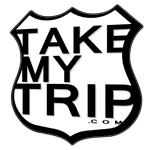
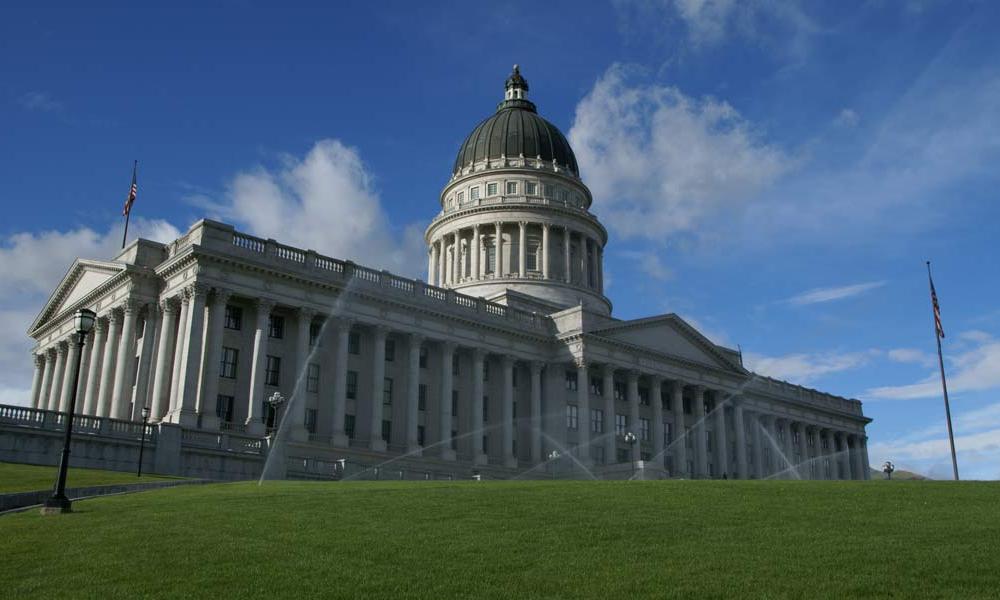
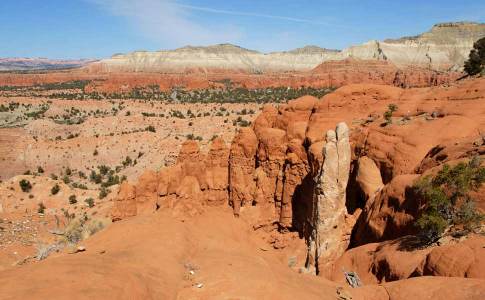
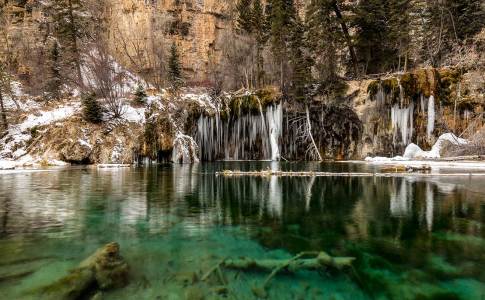
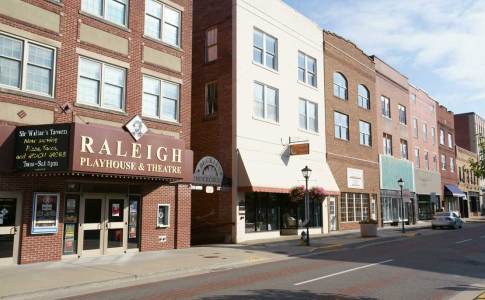
No comments